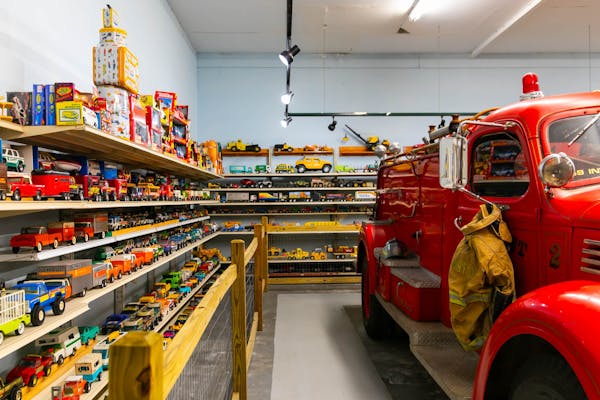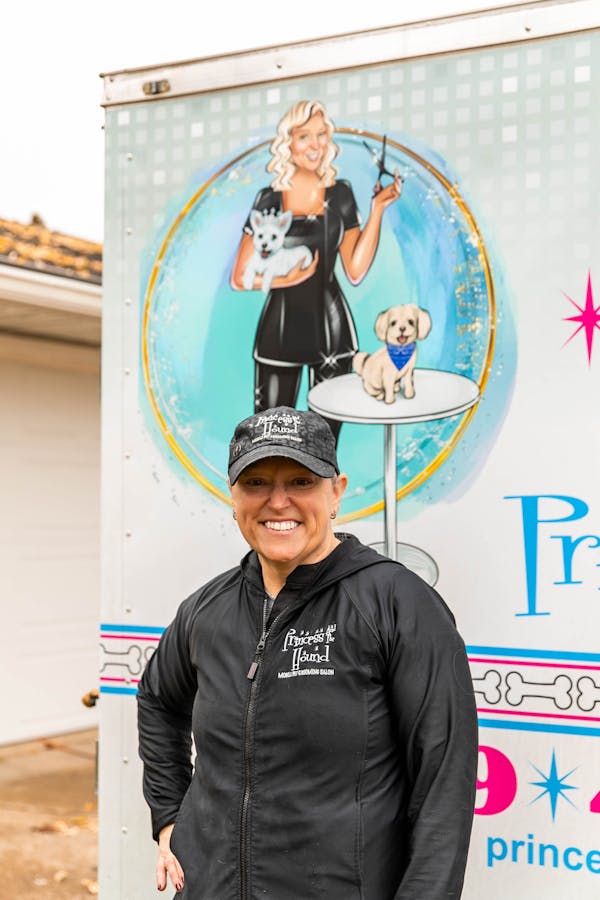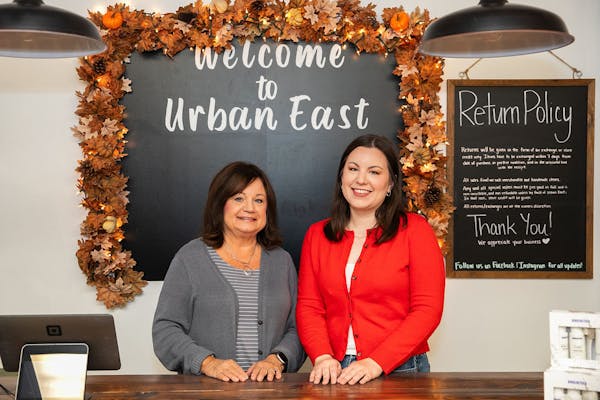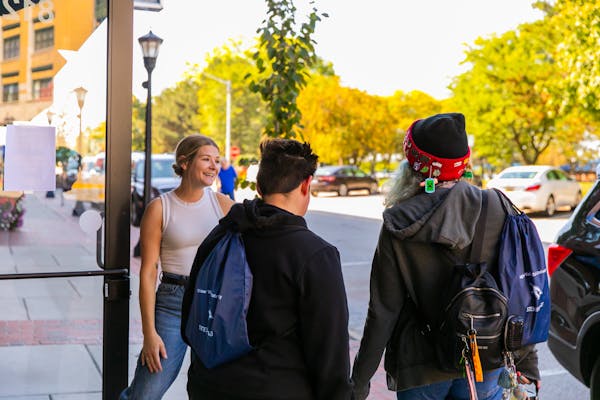“Being on the City Commission was my first elected position, and I found it to be an amazing experience. If I wanted to have conversations with my constituents, I could just walk out my door and talk to my neighbors. It was an opportunity to get to know the city and what's happening inside our government at a very different level. It was also about the practical nature of helping people.
Towards the end of my pregnancy with our son, Elijah, I wasn’t sleeping much. Thank God for Meijer being open 24 hours, because I think it was five o'clock in the morning when I decided to get groceries. While I was there, someone pulled something off a shelf for me, someone else helped me move my groceries, and someone else came out to the car and helped me load them. None of those people knew me, not one!
Being on city or county commissions or being a senator, it’s all an act of service. It’s a way we take care of one another. How do we be in a relationship with one another and figure things out together?
But in politics today, it feels worse than it has ever been in terms of the vitriol, awfulness, and people just really hating one another. This notion of ‘anger-tainment’, where we spend our free time watching people tear each other down, and all of the anger and conflict happens because we agree to participate in that nonsense.
I'm on a bit of a mission to say, ‘Politics doesn't have to be this way.’ If we all take a step back, we can understand that we all want things to be better. We all want to do good things for our community. Everybody wants our kids to succeed. Maybe a little comfort and love would help. You might not like the yard sign that your neighbor has, but you can see that they care about their kids.
At our core, a community comes down to relationships and those small acts of service.”
– Kristen McDonald Rivet, State Senator for Michigan Senate District 35

“So much can shift when we do better for our kids, and a big piece of that is childcare. We're in the middle of a childcare crisis—it's impossible to find. We've lost over half of our childcare businesses and most of the places throughout the district that are still open, have wait lists over two years. We have families that are paying 40 to 50% of their take home pay towards childcare!
We have so many employers facing a workforce shortage and I keep hearing people say, ‘People just don't want to work.’ Well, people need to be able to work and there are some things that we can do to help that.
At the same time, the childcare business is impossible to run in a way that pays livable wages for the staff. We're asking people to dedicate their lives to our kids at an age where the brain is at a stage of critical development, but most childcare providers don't make more than $16 an hour and we know that one in every five childcare professionals lives in poverty. 40% of them are eligible for at least one public benefit. If we are keeping professionals in a state of poverty in order to do this job, we have to fix it. The business model is broken and fixing the issue will require so much investment, so I’m advocating for that. We're making good progress on the governor's initiative for pre-K for all, of getting every child in Michigan into a preschool classroom. But the next step is childcare for all. I've got a package of bills that we're going to introduce in the fall to help with that, but we're going to have to invest some considerable state resources to make it happen.
Quite frankly, we've been asking our community organizations like the United Way to pick up the slack on this for too long, and thank God we have those organizations. But that's not the solution and it can't be the way the whole system works.
There's simply no way to do this without some public investment into childcare to make it easier. We need to be able to get folks back in the workforce, but we're not going to do that until we fix childcare. It’ll be tough, but it's just a matter of priorities. If this is important, then we can figure out a way to fund it.”
.JPG?ixlib=gatsbyFP&auto=compress%2Cformat&fit=max&w=1200&h=800)
“I was approached by an old friend who was a state senator already, and he said, ‘There's a new district line. It's going to be a really tough seat to win and has the potential to change who determines the policy in the state senate, and we think you can win it.’
At first, I thought about it and I said, ‘No, thank you, but let me help you find someone,’ because I knew what that was going to mean: how hard that was going to be on my family because of how ugly it was going to get. I went into it eyes wide open, but I was a little naïve because it was much uglier than I thought it was going to be. People take a lot of swipes and at the end of the day, you're still a human being. Those swipes still worry and wound you. But on the flip side, you are able to do something that really matters. In Lansing, Democrat or Republican, partisan or nonpartisan—the vast majority of people I interact with in elected office are good people who are just trying to make their communities and the state better with different ideas about how to get that done.
So, after considering it and talking about it for a long time, I thought this may be my moment to be in that place, using my skills, to help move things that I've spent my life working on.
The first thing we did was quadruple the earned income tax credit and provide over half a billion dollars in tax relief for Michigan’s working poor. We repealed the retirement tax—people don’t realize how many of our seniors are financially struggling so that tax relief mattered a lot.
We were able to repeal some laws that were on the books that just shouldn't be there. One of them was a very restrictive reproductive rights law. That was a 1931 law that made criminals of women and doctors and forbid reproductive rights; we repealed that. We also banned child marriage.
There was a law that banned cohabitation, so we took that off the books. We restored a lot of workers' rights that were part of the fabric of who we are in Michigan. We amended the Civil Rights Act to protect those who are LGBTQ+. One of the big pieces that was important to me, and my first public act, or the first law with my name on it, was a package of bills to prevent gun violence. It’s about requiring the safe storage of firearms and putting in place what's called an Extreme Risk Protection Order where if somebody is a danger to themselves or someone else, it creates a process where you can temporarily remove guns from the premises. Not permanently, but it's a temporary measure for safety. Then it also includes universal background checks.
These are things that really, really matter. There is documented research and proof that shows these things turn people's lives around and make things better and are worth standing up for.”
– Kristen McDonald Rivet, State Senator for Michigan Senate District 35






